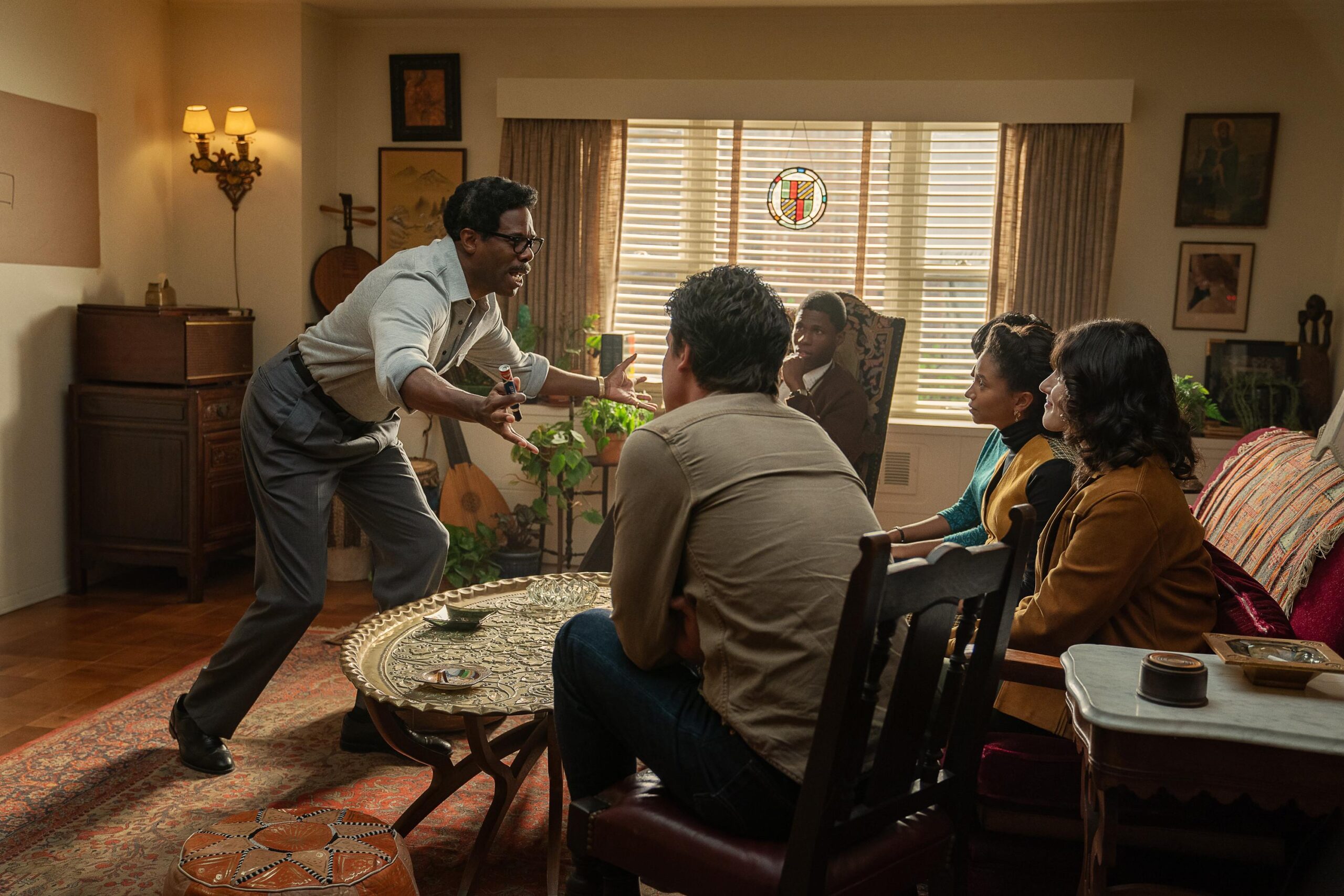When Barack Obama would list his favorite movies every year, I knew he had at least decent taste. That taste has proven even better than I expected with his movie production company (Higher Ground), making some of Netflix’s best features and documentaries. That pursuit of important stories continues with Rustin, highlighting both an actor and a reformer who’ve been unfairly overlooked by society.
And most people really don’t know who Bayard Rustin (Colman Domingo) is. That’s because, as the story goes, Rustin was both black and gay meaning he was doubly shunned by society. Clearly white southern politicians didn’t like him, but even the NAACP leaders like Roy Watkins (Chris Rock) didn’t want a gay man at the front of their movement for Civil Rights. Even Martin Luther King (Aml Ameen) vacillated on supporting “Uncle Bayard” publicly because of this double societal stigma. And yet, Rustin found a way to make an impact because of his innate charm and charisma, most notably by organizing the March on Washington on August 28, 1963.
Rustin is a movie built around a single performance. In this case, Colman Domingo is 100% ready for his big break. Domingo is always among the best parts of every movie he is in, and here he proves why. Domingo has to make you believe that this man would succeed above his social liabilities at the time, charming everyone he works with through hard work and brilliant persuasive debate. Though MLK was the face of the non violent movement in the US, it was Bayard who went to India a decade earlier to learn the techniques from Gandhi himself. Like James Baldwin, from the jump, Domingo makes it clear in every conversation that Bayard is the smartest person, with his only failing being his innate belief in progress and the best of people in spite of their personal fears/demons. Domingo is equally good in the rousing speeches as he is in the vulnerable moments, talents he’s had for many years now like his character counterpart.
As for the movie around Domingo’s Rustin, it’s ok. Built around the assembly of the March on Washington, director George Wolfe gives us a basic idea of the task put in front of Bayard and his amazing team of organizers like Rachelle Horowitz (Lilli Kay) and Eleanor Holmes (Ayana Workman) who probably deserve their own movies. I wish the movie were almost just about these boots on the ground organizers: the people who are the real engine behind big political organizations where the movie is at its most interesting. But since Rustin is the movie’s north star, we also get glimpses of the rest of his personality. We see how Rustin had to work with Civil Rights political leaders like Roy Watkins, MLK, A. Philip Randolph (Glynn Turman, always great) and Adam Clayton Powell Jr. (Jeffrey Wright, always great too), and even a young John Lewis (Maxwell Whittington-Cooper) as Rustin learned over the years to play the right political game for the sake of the cause. We also get a mini gay love triangle between Bayard, a closeted priest (Johnny Ramey) and his assistant Tom (Gus Halper). Like Bayard Rustin himself, the movie is pulled in a bunch of directions, meaning we only get a surface view of these non-Rustin characters/stories, which should be told at a later date.
But that doesn’t make Rustin any less necessary. In fact, I hope this starts a little mini movie anthology from the Obamas about the lesser known Civil Rights era figures. That way, for anyone who lacks the charm/perfect track record of Martin Luther King, you could still find your place inside a cause you believe in, helping make the machine work from the background. As Bayard sings in the film. That little light mine? I’m gonna let it shine. And you should too!

